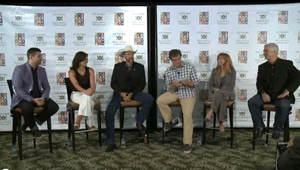We have all read stories, seen comments, and observed television interviews that contain less-than-accurate information on our industry and our practices. We get irritated, but wonder if it is worth the hassle to correct the inaccuracies. The author could also become irritated because they were trying to write a positive piece on agriculture, but then get a phone call or letter telling them they had wrong information. It seems like a no-win situation.
I have seen videos promoting agriculture by youth, college students, and adults. Their intent is good, but some of the details get distorted and wrong information gets posted in a video, which is then seen by more people, and the deceptive information gets disseminated to ag and non-ag alike. Do you send an email? Would you be discouraging the person from promoting the industry in the future? And, not knowing the author, and their level of knowledge and maturity, the message could be seen as an attack on their work, not to mention their attitude toward the author or company who contacted them.
It leaves us in a difficult situation. We want the correct information about our industry to be shared, but how do we police ourselves and others to be sure the most accurate information is distributed? Comments about how only a few family farms remain, antibiotics in store milk and outrageous farm subsidies to ag can irritate us when we know these are perceptions and not factual.
 Well, there is an organization that can help. The National Farmers & Ranchers Alliance developed a program to help correct misleading, questionable or unfair information. The questionable online posting is shared on their website. They evaluate it for accuracy, and supply a corrected statement on their website. Their resourced-response is then available for anyone to share via email, Facebook or twitter.
Well, there is an organization that can help. The National Farmers & Ranchers Alliance developed a program to help correct misleading, questionable or unfair information. The questionable online posting is shared on their website. They evaluate it for accuracy, and supply a corrected statement on their website. Their resourced-response is then available for anyone to share via email, Facebook or twitter.
Having a fact-checker for agriculture gives our industry a way to combat the uninformed, yet very vocal society who preach what they "think" agriculture is all about. It also aids us by keeping our own stories of agriculture accurate.
See the various topics the U.S. Farmers and Ranchers Alliance have posted on their website, under the "It's been said/our view."
I have seen videos promoting agriculture by youth, college students, and adults. Their intent is good, but some of the details get distorted and wrong information gets posted in a video, which is then seen by more people, and the deceptive information gets disseminated to ag and non-ag alike. Do you send an email? Would you be discouraging the person from promoting the industry in the future? And, not knowing the author, and their level of knowledge and maturity, the message could be seen as an attack on their work, not to mention their attitude toward the author or company who contacted them.
It leaves us in a difficult situation. We want the correct information about our industry to be shared, but how do we police ourselves and others to be sure the most accurate information is distributed? Comments about how only a few family farms remain, antibiotics in store milk and outrageous farm subsidies to ag can irritate us when we know these are perceptions and not factual.
 Well, there is an organization that can help. The National Farmers & Ranchers Alliance developed a program to help correct misleading, questionable or unfair information. The questionable online posting is shared on their website. They evaluate it for accuracy, and supply a corrected statement on their website. Their resourced-response is then available for anyone to share via email, Facebook or twitter.
Well, there is an organization that can help. The National Farmers & Ranchers Alliance developed a program to help correct misleading, questionable or unfair information. The questionable online posting is shared on their website. They evaluate it for accuracy, and supply a corrected statement on their website. Their resourced-response is then available for anyone to share via email, Facebook or twitter. Having a fact-checker for agriculture gives our industry a way to combat the uninformed, yet very vocal society who preach what they "think" agriculture is all about. It also aids us by keeping our own stories of agriculture accurate.
See the various topics the U.S. Farmers and Ranchers Alliance have posted on their website, under the "It's been said/our view."








